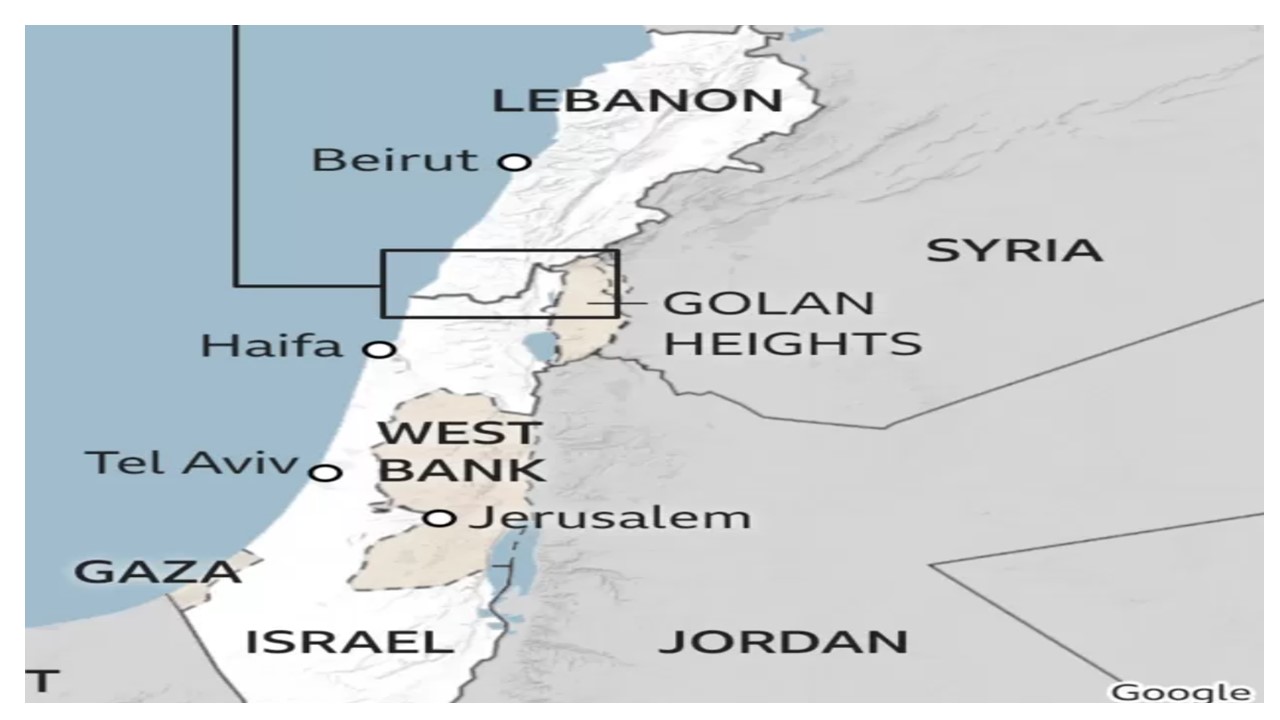Israel and Hezbollah: Tensions or War?
Tensions are growing between Israel and Hezbollah, though the odds of a war in the next 6 months remain modest. Military strategists note that such a war would require a large scale ground offensive and this is difficult given the war in Gaza.
Figure 1: Israel and Lebanon
Source BBC
While the main focus remains on the ongoing war in Gaza, tensions remain high between Israel and Hezbollah in South Lebanon. Both sides have been firing across the border, which is causing displacement of the civilian population. One line of thinking in Israel is that PM Netanyahu could consider the option of a war with Hezbollah to avoid elections and extend his term in office (partially to avoid legal cases). Hardliners also argue that strategically, Hezbollah needs to be confronted sooner rather than later.
However, military analysts note that a ground invasion would be required, given that Hezbollah rocket sites are well dug in and could not be overwhelmed by airstrikes alone. A war with Hezbollah would thus require significant military buildup in north Israel, which financial markets would note. Additionally, military thinkers note that it is difficult to fight a war on two fronts and that the war in Gaza would likely need to finish first. It remains unlikely that Hezbollah would deliberately start a war, as their main backer Iran is now inwardly focused with the election of a new president that is reform minded rather than hardline. For now the ideas of war appear to be a tool to try to control Hezbollah, which will attract attention but not produce much market reaction.
What financial market reaction would be seen, in the scenario that Israel decided to start a war? The initial reaction would likely be risk off for equities, flight to quality U.S. Treasuries and USD, like the Israel/Iran strikes and counterstrikes earlier this year. Much would also depend on whether the war is expected to be short or long and whether it would spill over to the civilian population in Israel and the Lebanon. This could threaten a vicious circle that brings in military involvement from Iran and/or the U.S. It could also risk increased threats to tanker traffic through the straits of Hormuz, which would at least temporarily boost oil prices. However, a Democratic U.S. president would likely be reluctant to get drawn into direct military involvement. If Donald Trump is elected then Israel would likely get more financial and weapons support given the Republicans leaning, but it is not necessarily more likely that the U.S. would get involved in a military sense. Trump has been reluctant to get involved in foreign wars, despite taking an outspoken stance against Iran in the past
